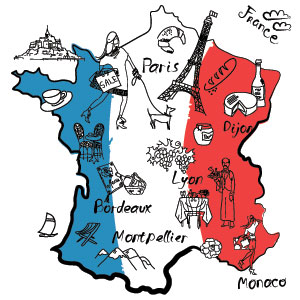We live in a highly globalised
world where the flow of human traffic is no longer as obstructed as it was a
few hundred years ago. Now, with air travel being so advanced, people can go
almost anywhere they want, with the only real restriction being time and money.
This is why we are finding ourselves in an increasingly cosmopolitan
environment. We no longer have to go Germany to see Germans, or Korea to see
Koreans. Instead, we find people of different nationalities and cultures all
around us. In fact, U-town, which houses the exchange students in its different
residences, is a prime example. Hence we don’t have to set our sights too far
to look for examples of intercultural behaviour.
My blog post today, concerns two intercultural examples, the first of which I experienced while I was on exchange.
My blog post today, concerns two intercultural examples, the first of which I experienced while I was on exchange.
#1: Level 1 vs. Level 0

This incident occurred between my Singaporean friend and I when we were in London. We were supposed to meet outside the Nike store at Oxford Street but when I arrived he’d already gone inside. He did send me a message stating that he was on level 2 of the store and so I proceeded to take the escalator up. However despite walking around the whole of the second storey, I didn’t see my friend anywhere. Thinking he was in the changing room, I sat down to wait. It was only later, when I called him that I realised the fundamental error in our communication. Basically in the UK, the culture is to refer to the first floor of a building as the ground floor, or level 0. However in Singapore, the first floor is simply referred to as the first floor, or Level 1. Hence when my friend texted ‘Level 2’, he’d been adhering to the norms of English culture and was actually on Level 3, if interpreted from a Singaporean standpoint, which was why neither of us could find each other despite both of us being in the exact same store. I think this is a good example of adapting to another culture when you have to. As the saying goes: When in Rome, do as the Romans do. In order to be able to fit in and comprehend the customs of another country, we must make the effort to accept and adopt their practices into our own behaviour, even if it is just for awhile.
The second event concerns my
family. This is because I come from a family that is somewhat like a mini
United Nations: many of my aunts and uncles have a spouse of a different
nationality. For example my aunt is Thai, and I have an Uncle each from
Malaysia, Ireland and France. And to complicate matters, my family is Peranakan
too. Hence no post about intercultural
behaviour would be complete without mentioning my family.
#2: Hello vs. Bonjour

This doesn’t relate to any specific incident, but my French uncle and his children have the habit of breaking into French when speaking to one another, even in group contexts where no one else but themselves can understand what they are saying. This happens especially when they get excited over something and my aunt frequently admonishes them for such behaviour. And while this doesn’t detract from our closeness as a family, it does, as mentioned in the peer teaching session, induce a temporary sense of exclusion whereby you get other family members smiling sheepishly at each other as if to reassure one another that they aren’t alone in not understanding this confusing babble. If such behaviour were prolonged in a different setting such as at work, it might cause other members of the group to feel neglected or to lose interest in the conversation and would definitely affect the effectiveness of any communication taking place. By conversing in a different language understood only by certain individuals, it erects a barrier that English as a lingua franca has helped to break down.
Hence with the increase in flow
of human traffic from one country to another, intercultural communication and
behaviour is becoming increasingly crucial to our survival. It isn’t enough to
strive for effective interpersonal communication, we must also aim towards
achieving successful intercultural communication as well!